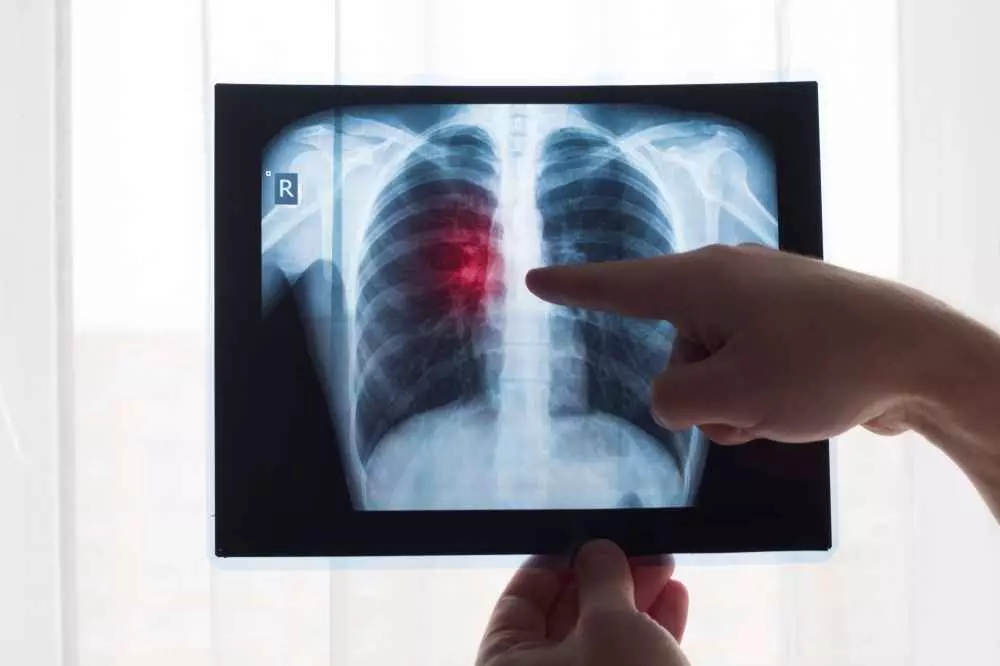Examples of best practices in the area of lung cancer treatment
Introduction to lung cancer treatment
Lung cancer is one of the most commonly diagnosed cancers in the world. Due to its increasing incidence and high mortality rate, it is critical to understand best practices in its treatment. In this article, we'll take a look at various therapeutic approaches and innovations that can help improve treatment outcomes.
The role of early diagnosis
Early diagnosis of lung cancer is crucial to the effectiveness of treatment. Screening tests, such as low-dose computed tomography (CT) scans, can detect cancer at an early stage, significantly increasing the chances of cure. Regular check-ups for high-risk individuals, such as smokers and those with a family history of cancer, are vital.

Surgery as a treatment method
Surgery is one of the primary treatments for lung cancer, especially in cases where the tumor is localized and has not spread to other parts of the body. Surgeries such as lobectomy, in which part of the lung is removed, or pneumonectomy, in which the entire lung is removed, are often used. It is crucial to assess the stage of the cancer and the patient's overall health before deciding on surgery.
Radiation therapy in the treatment of lung cancer
Radiation therapy is another effective treatment for lung cancer that can be used alone or in combination with other therapies. This technique involves the use of ionizing radiation to destroy cancer cells. Modern technologies, such as intensity modulated radiation therapy (IMRT), make it possible to precisely target the radiation dose to tumors while minimizing damage to healthy tissues.
Chemotherapy and its place in treatment
Chemotherapy remains the standard treatment for lung cancer, especially in advanced cases. The drugs used in chemotherapy work at the cellular level, inhibiting the growth and division of cancer cells. Although chemotherapy can cause many side effects, modern approaches, such as the use of immunotherapy in combination with chemotherapy, can effectively improve treatment outcomes.
Immunotherapy - a new era in lung cancer treatment
Immunotherapy is gaining increasing importance in the treatment of lung cancer. Unlike traditional methods, this form of therapy mobilizes the patient's immune system to fight the cancer. Drugs such as checkpoint inhibitors (e.g., nivolumab, pembrolizumab) offer patients new options, especially in non-small cell cancer cases. Studies show that response to immunotherapy can take longer than with other treatments.
Psychological support and rehabilitation
Psychological support and rehabilitation programs play a key role in the treatment of lung cancer patients. The stress of cancer diagnosis and treatment can significantly affect a patient's well-being. Therefore, it is important to provide appropriate forms of support, such as psychological therapy, support groups and relaxation techniques. Respiratory rehabilitation can also help patients improve quality of life and respiratory function after treatment.
Innovations and the future of lung cancer treatment
Innovations in cancer medicine, such as targeted therapies and clinical trials, are becoming increasingly important in the fight against lung cancer. Targeted therapies, which focus on specific gene mutations in cancer cells, offer new hope for many patients. In addition, advances in molecular biology and genomics are making it possible to develop personalized treatment approaches, significantly increasing the effectiveness of therapies.
Summary and conclusions
The fight against lung cancer requires a multifaceted approach and integrated treatments. Not only is early detection and the use of modern therapies crucial, but also psychological and rehabilitative support for patients. The continuous development of research and innovation in the field of oncology gives hope for increasingly better treatment results and quality of life for lung cancer patients.
